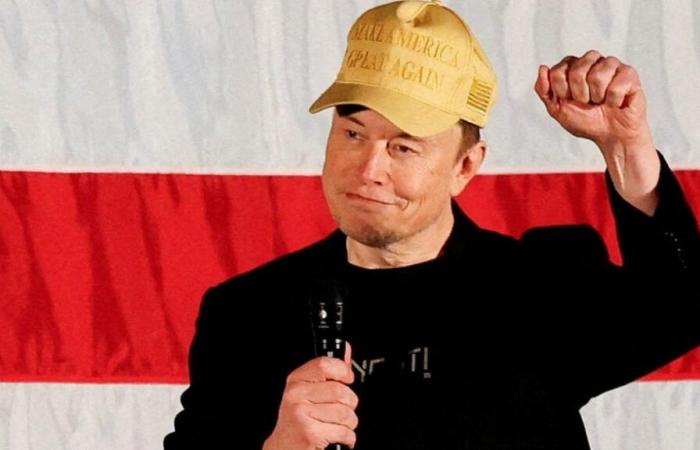Two months before the federal election, US billionaire Elon Musk campaigned for the AfD. “Only the AfD can save Germany,” he wrote on X, referring to a video by right-wing populist activist Naomi Seibt. There, among other things, they accused the Union candidate for chancellor Friedrich Merz of refusing to hold talks with the AfD and thus denying a “freedom-friendly approach”.
The party’s candidate for chancellor, Alice Weidel, reacted happily: “Yes! You’re absolutely right, Elon Musk!”
On Friday afternoon, Weidel also released a 31-second video in which she said: “Dear Elon, thank you so much for your note.” The AfD is indeed the only alternative for Germany. The last option if asked. Finally, she wishes him and future President Donald Trump all the best for the upcoming term and Musk and the American people a Merry Christmas and a Happy New Year.
SPD General Secretary Matthias Miersch objected to Musk's assessment: “No outside interference in the German election campaign – that is a principle that we have to defend,” he told the news site “t-online”. “The AfD proves again and again that it does not act in the interests of our country.” He accused the AfD of receiving support from Russia or other authoritarian states.
If Musk now intervenes in the election campaign with X to give the AfD tailwind, that would be “an alarming signal,” said the SPD politician. “Right-wing networks are deliberately trying to destabilize our liberal democracy,” warned Miersch. “We oppose this clearly: Germany needs neither foreign influences nor Trumpism. Stay out, Elon.”
Green politician Renate Künast also expressed criticism. One should not allow Musk, with 200 million followers and algorithms behind him, to “manipulate elections in Germany in the near future,” said the 69-year-old in her last speech in the Bundestag. Künast is no longer running. She asked “that we not allow elections to be manipulated.”
Federal government rejects assessment of Musk's contribution
The federal government did not want to evaluate Musk's comments on Friday. “We have of course taken note of this and of course freedom of expression also applies to X,” said deputy government spokeswoman Christiane Hoffmann. The federal government does not want to comment on this. She therefore does not plan to close her accounts with X.
Before the planned federal election on February 23rd, the AfD is in second place in surveys with around 19 percent, behind the Union with more than 30 percent. All parties represented in the Bundestag exclude cooperation with the party.
Musk is a close advisor to US President-elect Donald Trump. He has hardly left the Republican's side for weeks. Already in the summer, the American tech billionaire, who as Tesla boss is one of the largest employers in Brandenburg, praised the AfD after the European elections. The party is described as right-wing extremist, “but the political positions of the AfD that I have read about do not sound extremist,” he wrote on X at the beginning of June.
Musk spent millions on Trump's election victory during the US election campaign and advocates for a radical dismantling of state authorities and regulatory institutions. Critics accuse him of wanting to abolish control over his X service.
Musk has also interfered in British domestic politics with his short message service X, which is used worldwide, and has expressed sympathy for right-wing movements in other countries. There are reports that he is said to be supporting Nigel Farage's British anti-EU party with millions of euros.
Security authorities in Germany warn that they expect interference in the federal election campaign from Russia, but also the USA. So far, the focus has been on state-controlled disinformation campaigns from Russia.






